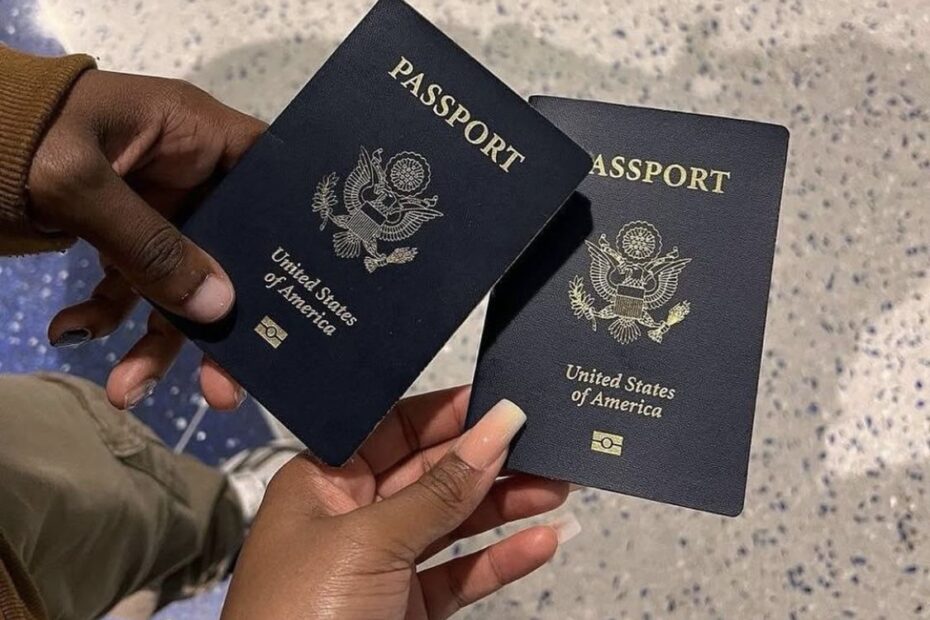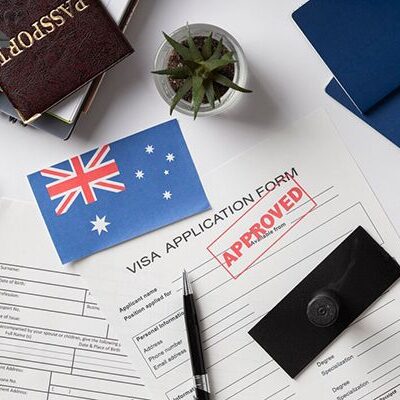Securing a marriage visa sponsorship in Canada can be an exciting yet complex process. Whether you are a Canadian citizen or permanent resident looking to sponsor your spouse, or a foreign national hoping to join your partner in Canada, understanding the steps involved is crucial. This comprehensive guide will walk you through the entire process, from eligibility requirements to finalizing your application.
Introduction to Marriage Visa Sponsorship in Canada
Canada’s spousal sponsorship program allows Canadian citizens and permanent residents to sponsor their foreign spouses or common-law partners for permanent residence. This program is designed to reunite families and support the emotional and economic well-being of Canadian residents. The process involves several steps, including proving the genuineness of the relationship, meeting financial requirements, and submitting a comprehensive application.
Results
#1. Which field are you looking for a job in?
#2. What is your highest level of education?
#3. Are you willing to relocate to any province in Canada?
#4. How many years of experience do you have in your field?
#5. What is your current employment status?
#6. Do you have a valid work permit or visa for Canada?
Step 1: Determine Eligibility
Eligibility for the Sponsor
To sponsor your spouse or common-law partner, you must meet the following criteria:
- Canadian Citizen or Permanent Resident: You must be a Canadian citizen or permanent resident.
- Age Requirement: You must be at least 18 years old.
- Financial Stability: You must demonstrate that you have the financial means to support your spouse or partner. This includes providing proof of income and ensuring that you are not receiving social assistance for reasons other than disability.
- No Criminal Record: You must not have a criminal record that could prevent you from sponsoring your spouse.
- No Previous Sponsorship Defaults: You must not have previously sponsored a spouse or partner who received social assistance within three years of becoming a permanent resident.
Eligibility for the Sponsored Person
The sponsored person must meet the following criteria:
- Marriage or Common-Law Relationship: You must be legally married to your sponsor or have been in a common-law relationship for at least one year.
- Age Requirement: You must be at least 18 years old.
- No Criminal Record: You must not have a criminal record that could prevent you from entering Canada.
- Medical Examination: You must pass a medical examination to ensure you do not have any health conditions that could pose a risk to public health or safety.
Step 2: Gather Required Documents
Gathering the necessary documents is a critical step in the application process. The following documents are typically required:
For the Sponsor
- Proof of Canadian Citizenship or Permanent Residence: This could include a Canadian passport, birth certificate, or permanent resident card.
- Proof of Income: This could include tax returns, employment letters, or bank statements.
- Police Certificates: If you have lived outside Canada for six months or more since the age of 18, you may need to provide police certificates from those countries.
- Completed Application Forms: Ensure all forms are accurately completed and signed.
For the Sponsored Person
- Marriage Certificate: A valid marriage certificate if you are married.
- Proof of Common-Law Relationship: If you are in a common-law relationship, provide evidence such as joint bank accounts, shared lease agreements, or utility bills.
- Police Certificates: From your home country and any other country where you have lived for six months or more since the age of 18.
- Medical Examination Report: A medical examination report from a designated medical practitioner.
- Completed Application Forms: Ensure all forms are accurately completed and signed.
Step 3: Prove the Genuineness of the Relationship
Proving the genuineness of your relationship is essential for a successful application. The following evidence can help demonstrate the authenticity of your relationship:
- Photographs: Include photos of you and your spouse together, preferably with dates and locations.
- Communication Records: Provide emails, text messages, or social media conversations that show regular communication.
- Joint Financial Documents: Include joint bank accounts, shared bills, or insurance policies.
- Travel Records: Provide evidence of trips taken together, such as plane tickets or hotel bookings.
- Letters of Support: Letters from friends and family members who can attest to the genuineness of your relationship.
Step 4: Complete the Application Forms
The application process involves completing several forms. The most important forms include:
- Application to Sponsor, Sponsorship Agreement and Undertaking (IMM 1344): This form is completed by the sponsor and outlines the sponsorship agreement and financial undertaking.
- Generic Application Form for Canada (IMM 0008): This form is completed by the sponsored person and includes personal and background information.
- Additional Family Information (IMM 5707): This form provides additional information about the sponsored person’s family members.
- Schedule A – Background/Declaration (IMM 5669): This form is completed by the sponsored person and includes a background declaration.
- Document Checklist (IMM 5533): This checklist ensures that all required documents are included in the application.
Step 5: Pay the Application Fees
The application fees for spousal sponsorship include:
- Sponsorship Fee: CAD 75
- Principal Applicant Processing Fee: CAD 490
- Right of Permanent Residence Fee: CAD 500
- Biometrics Fee: CAD 85 (if applicable)
Fees can be paid online through the Immigration, Refugees and Citizenship Canada (IRCC) website. Ensure you keep a record of your payment receipt.
Step 6: Submit the Application
Once you have gathered all the required documents, completed the application forms, and paid the fees, you can submit your application. The application can be submitted online through the IRCC website or by mail to the appropriate processing center.
Submit Your Applications
Submitting Online
- Create an IRCC Account: If you don’t already have one, create an account on the IRCC website.
- Upload Documents: Upload all required documents and completed forms.
- Pay Fees: Pay the application fees online.
- Submit Application: Review your application and submit it electronically.
Submitting by Mail
- Print and Sign Forms: Ensure all forms are printed, signed, and dated.
- Include Payment Receipt: Include a copy of your payment receipt.
- Mail Application: Send your application package to the appropriate processing center. The address can be found on the IRCC website.
Step 7: Wait for Processing
Processing times for spousal sponsorship applications can vary depending on the volume of applications and the complexity of individual cases. As of the current date, the average processing time is approximately 12 months, but this can change. You can check the latest processing times on the IRCC website.
Tracking Your Application
You can track the status of your application online through your IRCC account. If you submitted your application by mail, you can link your application to your online account to track its progress.
Step 8: Prepare for the Interview (If Required)
In some cases, the IRCC may require an interview to assess the genuineness of your relationship. If you are called for an interview, prepare thoroughly by:
- Reviewing Your Application: Ensure you are familiar with all the details of your application.
- Gathering Additional Evidence: Bring any additional evidence that supports the genuineness of your relationship.
- Practicing Common Questions: Prepare for common interview questions about your relationship, such as how you met, your daily routines, and future plans.
Step 9: Receive a Decision
Once your application has been processed, you will receive a decision from the IRCC. If your application is approved, the sponsored person will receive a Confirmation of Permanent Residence (COPR) document and a permanent resident visa (if applicable). If your application is refused, you will receive a letter explaining the reasons for the refusal and your options for appeal.
Step 10: Finalize the Process
If Approved
- Travel to Canada: The sponsored person can travel to Canada with their COPR and permanent resident visa.
- Landing Process: Upon arrival in Canada, the sponsored person will go through the landing process at a port of entry, where they will be officially granted permanent residence.
- Permanent Resident Card: The sponsored person will receive their permanent resident card by mail within a few weeks of landing.
If Refused
- Review the Refusal Letter: Carefully review the reasons for the refusal.
- Seek Legal Advice: Consider consulting an immigration lawyer to discuss your options for appeal.
- Submit an Appeal: If eligible, submit an appeal to the Immigration Appeal Division (IAD) within the specified timeframe.
Common Challenges and How to Overcome Them
Navigating the marriage visa sponsorship process in Canada can present several challenges. Understanding these potential obstacles and knowing how to address them can significantly improve your chances of a successful application. Here are some of the most common challenges and strategies to overcome them:
Proving the Genuineness of the Relationship
Challenge: One of the most common challenges is proving the genuineness of the relationship. Immigration officers scrutinize applications to ensure that the relationship is authentic and not merely for immigration purposes. This can be particularly challenging for couples who have spent significant time apart or have limited documentary evidence of their relationship.
Solutions:
- Comprehensive Documentation:
- Photographs: Gather a variety of photographs that show you and your spouse together in different settings and at various stages of your relationship. Include dates and locations if possible.
- Communication Records: Provide copies of emails, text messages, social media conversations, and letters that demonstrate regular and meaningful communication. Highlight key moments, such as anniversaries, birthdays, or significant life events.
- Joint Financial Documents: Include joint bank accounts, shared bills, insurance policies, and any other financial documents that show a shared financial life.
- Travel Records: Provide evidence of trips taken together, such as plane tickets, hotel bookings, and travel itineraries.
- Letters of Support: Obtain letters from friends, family members, and colleagues who can attest to the genuineness of your relationship. These letters should include specific examples and anecdotes that illustrate your commitment and shared life.
- Detailed Narrative:
- Write a detailed narrative describing how you met, the progression of your relationship, significant milestones, and your future plans. Include personal anecdotes and emotional details to make your story compelling and authentic.
- Consistent Information:
- Ensure that all the information provided in your application is consistent and accurate. Any discrepancies can raise doubts about the genuineness of your relationship.
Financial Requirements
Challenge: Meeting the financial requirements can be challenging for some sponsors, especially if they have limited income or are self-employed. The sponsor must demonstrate that they have the financial means to support their spouse or partner without relying on social assistance.
Solutions:
- Gather Financial Documents:
- Income Proof: Provide tax returns, employment letters, pay stubs, and bank statements that show your income and financial stability.
- Assets: Include documentation of any assets you own, such as property, investments, or savings accounts.
- Employment History: Provide a detailed employment history, including any promotions, raises, or job changes that demonstrate your financial stability.
- Seek Professional Advice:
- Financial Advisor: Consider consulting a financial advisor who can help you organize your financial documents and provide strategies to improve your financial situation.
- Immigration Lawyer: An immigration lawyer can review your financial documents and ensure that you meet the required financial criteria.
- Co-Signer:
- If you are unable to meet the financial requirements on your own, consider having a co-signer who can provide additional financial support. The co-signer must also meet the eligibility criteria and provide the necessary financial documents.
Processing Delays
Challenge: Processing delays can be frustrating and can cause anxiety for applicants. Delays can occur due to a high volume of applications, incomplete documentation, or additional scrutiny of the application.
Solutions:
- Stay Organized:
- Keep a detailed record of all the documents you have submitted and any correspondence with the IRCC. This will help you stay organized and quickly address any requests for additional information.
- Regularly Check Status:
- Use your IRCC account to regularly check the status of your application. This will help you stay informed about any updates or changes in your application status.
- Contact IRCC:
- If there are significant delays, consider contacting the IRCC for an update. Be polite and patient, and provide any additional information or documents that may be required.
- Seek Legal Assistance:
- If the delays are prolonged and you are concerned about the status of your application, consider seeking the assistance of an immigration lawyer. A lawyer can help you understand the reasons for the delay and provide strategies to expedite the process.
Language Barriers
Challenge: Language barriers can be a significant challenge, especially for sponsored persons who are not fluent in English or French. This can affect their ability to complete application forms, understand the application process, and communicate effectively with immigration officers.
Solutions:
- Translation Services:
- Use professional translation services to ensure that all documents are accurately translated into English or French. This includes marriage certificates, police certificates, and any other required documents.
- Language Support:
- Seek the assistance of a friend, family member, or professional who is fluent in English or French and can help with the application process. They can provide guidance, answer questions, and ensure that all information is accurately completed.
- Language Classes:
- Consider enrolling in language classes to improve your English or French skills. This can help you communicate more effectively with immigration officers and integrate more easily into Canadian society.
Medical Examination
Challenge: The medical examination is a crucial part of the application process, and any health issues can potentially affect the outcome of the application. Ensuring that the medical examination is completed accurately and on time is essential.
Solutions:
- Choose a Designated Medical Practitioner:
- Ensure that the medical examination is conducted by a designated medical practitioner who is approved by the IRCC. This will ensure that the examination meets the required standards and is accepted by the IRCC.
- Prepare for the Examination:
- Bring any necessary medical records, prescriptions, or other relevant documents to the examination. This will help the medical practitioner accurately assess your health status.
- Follow-Up:
- If the medical examination reveals any health issues, follow up with the medical practitioner to address these issues and provide any additional information or documentation that may be required.
Criminal Background
Challenge: A criminal background can be a significant obstacle in the application process. Both the sponsor and the sponsored person must provide police certificates and disclose any criminal history.
Solutions:
- Honest Disclosure:
- Be honest and transparent about any criminal history. Provide all necessary police certificates and any additional documentation that explains the circumstances of the criminal history.
- Rehabilitation:
- If applicable, provide evidence of rehabilitation, such as completion of community service, counseling, or other rehabilitative programs. This can demonstrate that the criminal history is not a barrier to the application.
- Legal Assistance:
- Consider seeking the assistance of an immigration lawyer who can provide guidance on how to address criminal background issues and present a strong case for the application.
Incomplete or Inaccurate Application
Challenge: Submitting an incomplete or inaccurate application can lead to delays, requests for additional information, or even refusal of the application. Ensuring that the application is complete and accurate is crucial.
Solutions:
- Double-Check:
- Carefully review all application forms and documents to ensure that they are complete and accurate. Double-check for any missing information, errors, or inconsistencies.
- Use the Document Checklist:
- Use the document checklist provided by the IRCC to ensure that all required documents are included in the application. This will help you stay organized and avoid missing any important documents.
- Seek Professional Review:
- Consider having a professional, such as an immigration consultant or lawyer, review your application to ensure that it is complete and accurate. They can provide valuable insights and identify any potential issues.
By understanding these common challenges and implementing the suggested solutions, you can navigate the marriage visa sponsorship process more effectively and increase your chances of a successful outcome. Stay organized, seek professional advice when needed, and remain patient throughout the process. With dedication and preparation, you can overcome these challenges and reunite with your loved one in Canada.
Conclusion
Securing a marriage visa sponsorship in Canada is a multi-step process that requires careful planning and attention to detail. By following this step-by-step guide, you can navigate the application process with confidence and increase your chances of a successful outcome. Remember to stay organized, gather all necessary documents, and seek professional advice if needed.
Whether you are a Canadian citizen or permanent resident looking to sponsor your spouse, or a foreign national hoping to join your partner in Canada, this guide provides a comprehensive overview of the spousal sponsorship process. With dedication and preparation, you can reunite with your loved one and build a future together in Canada.






I’m driver with original license 🪪 and building line work carpenter decor in Saudi Arabia country dear
Am interested
I want to get married.
I’m interested from Saudi Arabia country dear I’m driver and building line work carpenter decor
I’m driver in Jeddah Saudi Arabia I’m interested on Canada job and marriage
I’m driver in Jeddah Saudi Arabia before 10 years
I have interest in it please let me know what is going on now